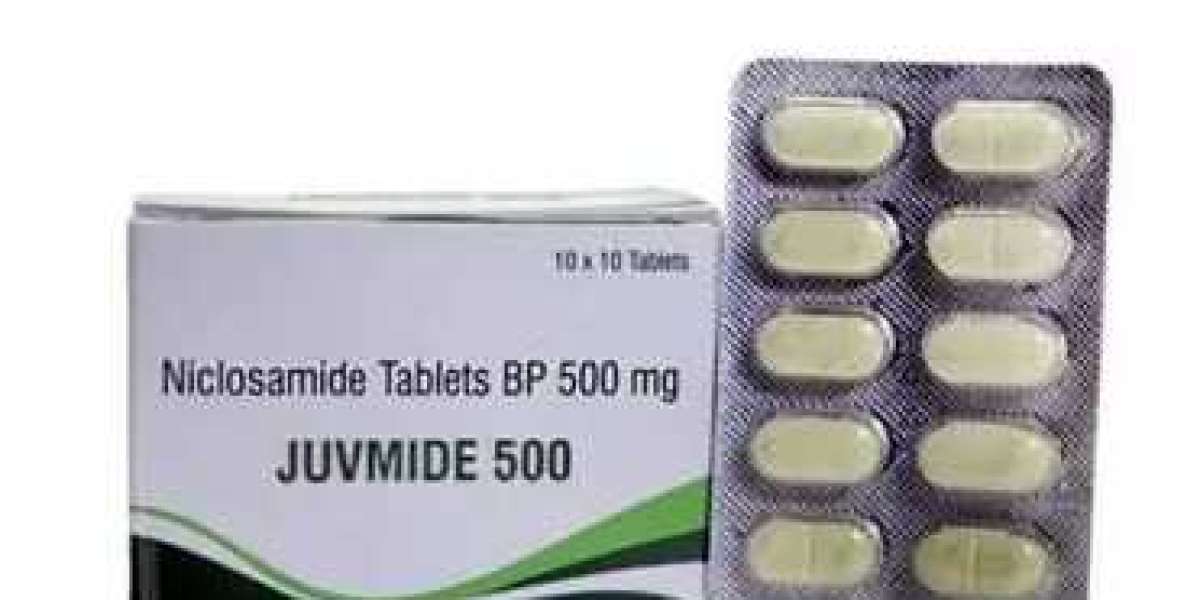Buy Niclosamide is a medication that has gained attention for its potential therapeutic uses beyond its original purpose as an anthelmintic drug. While it shows promise in treating various conditions, including cancer and viral infections, understanding its side effects is crucial for safe and effective use.
What is Niclosamide?
Niclosamide 500 mg is an FDA-approved drug primarily used to treat tapeworm infections in humans. However, recent research has explored its broader pharmacological effects, leading to investigations into its potential applications in cancer therapy, antiviral treatments, and even as a modulator of metabolic pathways.
Common Side Effects
- Gastrointestinal Disturbances: One of the most frequently reported side effects of niclosamide is gastrointestinal upset. This can manifest as nausea, vomiting, diarrhea, or abdominal discomfort. These symptoms are usually mild to moderate and may resolve with continued use or dose adjustments.
- Headache: Some individuals may experience headaches while taking niclosamide. These headaches are typically mild and transient but can be bothersome for some patients.
- Dizziness: Niclosamide may cause dizziness or lightheadedness in some individuals. This side effect is often temporary and may improve over time as the body adjusts to the medication.
- Fatigue: Feeling tired or fatigued is another potential side effect of niclosamide. This can affect daily activities and may require rest or adjustments in medication timing.
- Loss of Appetite: Niclosamide can sometimes lead to a decreased appetite, which may result in weight loss or nutritional deficiencies if not managed properly.
Less Common Side Effects
- Allergic Reactions: While rare, some individuals may experience allergic reactions to niclosamide, such as rash, itching, swelling, or difficulty breathing. Immediate medical attention is necessary if any signs of an allergic reaction occur.
- Liver Toxicity: In rare cases, niclosamide has been associated with liver toxicity, which can cause jaundice, abdominal pain, and elevated liver enzymes. Monitoring liver function during treatment is essential to detect any potential issues early.
- Central Nervous System Effects: Niclosamide may rarely cause central nervous system effects, such as confusion, mood changes, or seizures. These symptoms warrant immediate medical evaluation.
- Electrolyte Imbalance: Prolonged use of niclosamide can disrupt electrolyte balance, leading to conditions like hypokalemia (low potassium levels) or hypocalcemia (low calcium levels). Regular monitoring and appropriate supplementation may be necessary.
Drug Interactions
Niclosamide may interact with certain medications, potentially increasing the risk of side effects or reducing efficacy. It's essential to inform healthcare providers about all medications, supplements, and herbal products being taken to minimize these risks.
Managing Side Effects and Risks
- Communication: Open communication with healthcare providers is crucial to address any concerns or side effects promptly. Reporting any unusual symptoms can help in managing treatment effectively.
- Dosage Adjustment: In some cases, adjusting the dosage of niclosamide or changing the dosing schedule may help alleviate side effects while maintaining therapeutic benefits.
- Monitoring: Regular monitoring of liver function, electrolyte levels, and overall health is important during niclosamide treatment, especially for long-term use or in patients with pre-existing medical conditions.
- Hydration and Nutrition: Maintaining adequate hydration and nutrition can help mitigate gastrointestinal side effects and support overall well-being during niclosamide therapy.
Conclusion
Niclosamide holds promise as a versatile medication with potential applications beyond its original indication. However, like any medication, it carries potential side effects and risks that need to be understood and managed. By staying informed, communicating with healthcare providers, and monitoring for adverse effects, patients can maximize the benefits of niclosamide while minimizing potential drawbacks.



